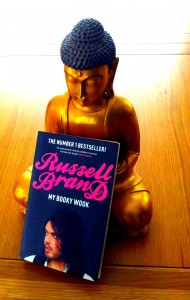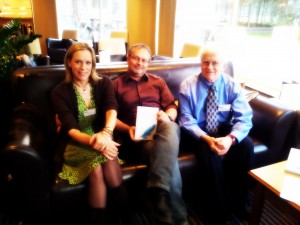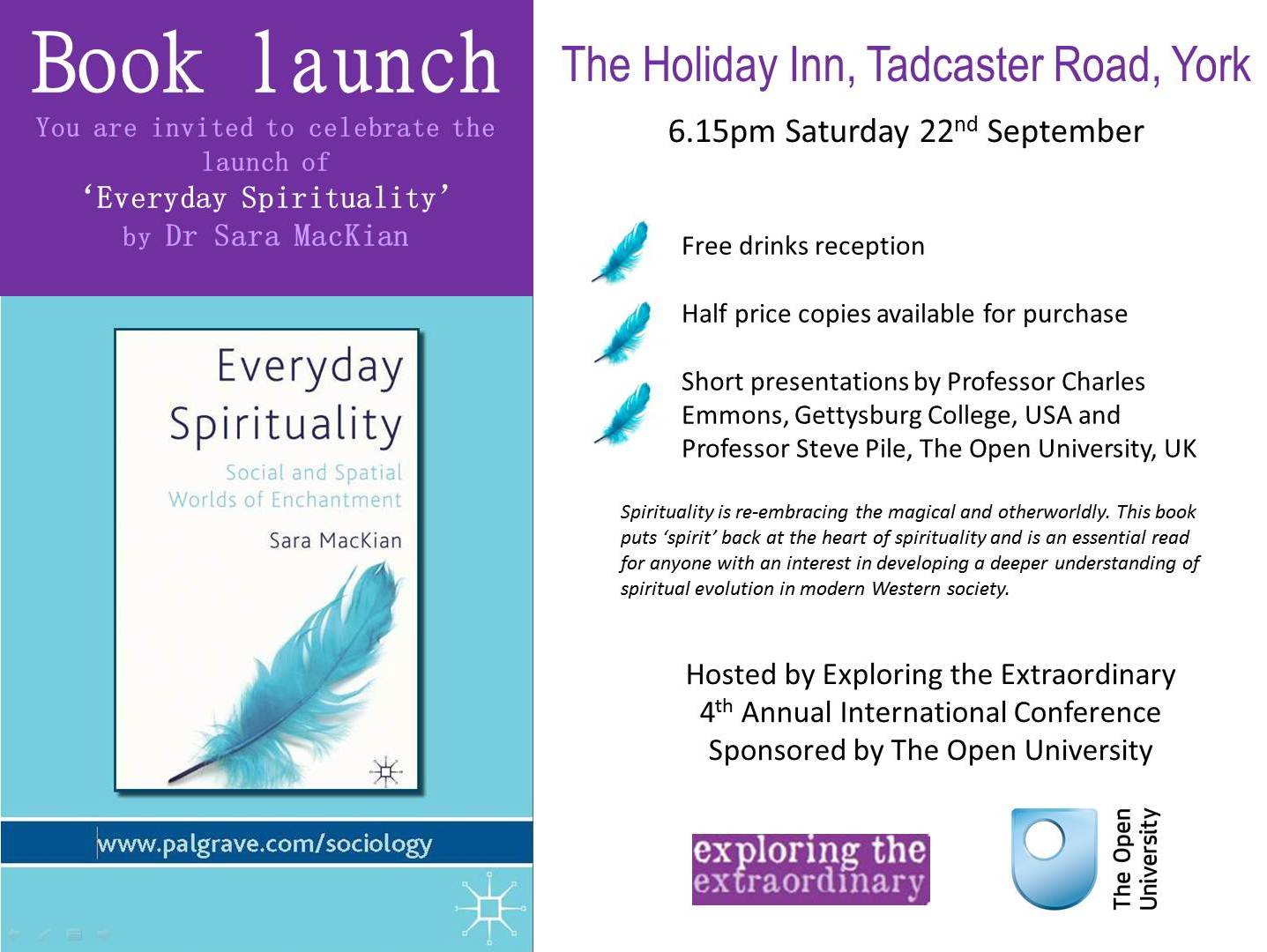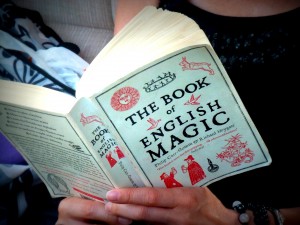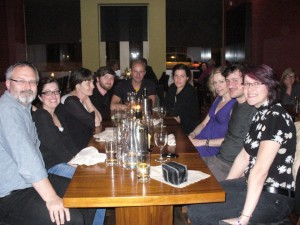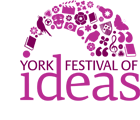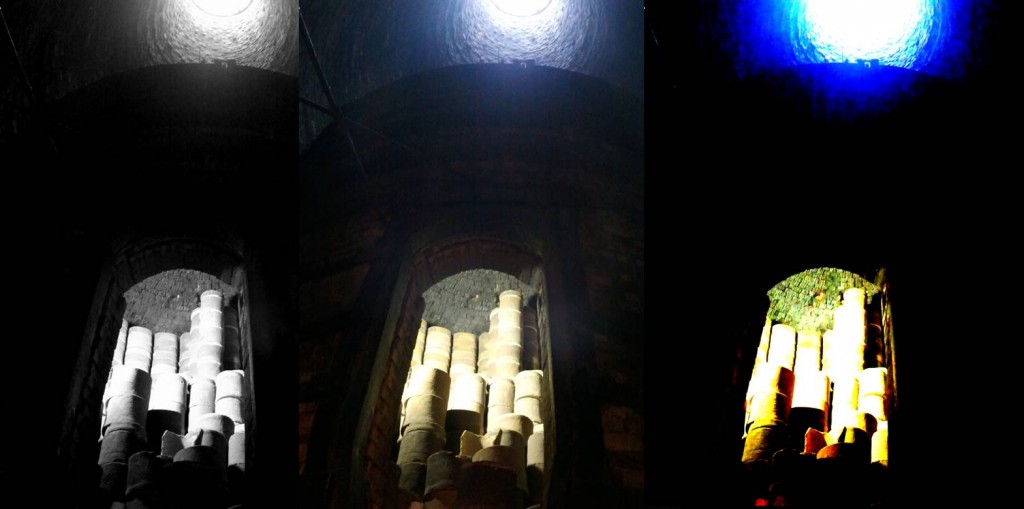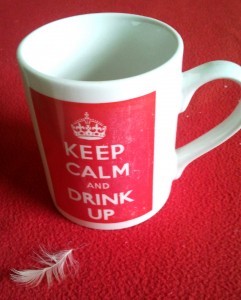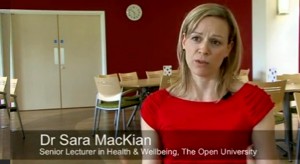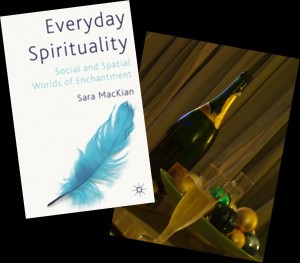The last time I posted about a book on here it was to comment on how engrossed I had become with Philip Carr-Gomm and Richard Heygate’s ‘The Book of English Magic’ which completely absorbed me for my week by the pool in the sun this summer. More recently I have been captivated by Russell Brand’s‘My Booky Wook’.
From the sublime to the ridiculous, I hear you cry, but for me there is ultimately a link. Carr-Gomm and Heygate’s book is about the history of a society desperately seeking meaning in a world which promises magic and wonder if only you can cut through the veil between this and otherworlds; Brand’s book is about his desperate search for meaning in a world which was veiled by a self-induced haze of sex, drugs and alcohol, through which he was trying to clamber into his own otherworld of stardom and fame.
But there is more to Brand than he lets on in his book and my seemingly spurious link does not end there. Carr-Gomm is not only a writer and psychologist, he is also Leader of the Order of Bards Ovates and Druids. Druidry is a nature spirituality which unites practitioners’ love of earth, creativity and the arts. Under his leadership the Order has grown to become the largest Druid teaching order in the world, making a significant contribution to modern day spirituality.
Brand – voted 2011’s Sexiest Vegetarian – is an artist, a creative performer, fan of Transcendental Meditation and yoga. In his Newsnight interview with Jeremy Paxman Brand talked about how his spirituality helps him to expose the illusion of separation that we live under. He said he is seeking a ‘different narrative’ that is in line with our needs as individuals and as a planet.
Unlikely leaders?
Although worlds apart in many respects, these are two men simultaneously on serious spiritual quests for what unites humanity beyond the mere momentary flashes of happiness that materiality seems capable of offering.
It is people like Carr-Gomm and Brand who perhaps between them can come up with that ‘different narrative’, which might speak more meaningfully to people about their relationship with each other and the planet. My research shows they are certainly not alone, and many people today are busy pursuing their own spiritual journeys in an attempt to connect to something deeper, more meaningful and more magical than our often hollow world appears to offer. But these everyday people I speak to don’t necessarily have the influence or leadership opportunities to promote that search more widely. Indeed they very often keep their thoughts and ideas quiet, for fear of being labelled by people who don’t understand.
Russell Brand, of course, has had many labels thrown at him over the years, and would appear to have no fear of them. In an interview with the BBC earlier this year he was quoted as saying ‘I don’t mind having a reputation as a serious and spiritual person. I think that would be a nice reputation to have’.
I think that would be a nice reputation for him to have as well, and I think he is starting to build it – through things like his address to the Home Affairs Select Committee on drug rehabilitation, his role as patron for Focus12, his appearance with the Dalai Lama in Manchester Arena, not to mention his headline-grabbing obsession with yoga. Brand has the potential to step up as one of the twenty-first century’s most unlikely spiritual leaders.
He may have annoyed a lot of people over the years and done many things which might be considered inherently un-spiritual (which he describes with candour in his book). But his is a very high profile story of the way in which many thousands of people today are finding that a turn to the spiritual can fit very comfortably alongside and within the materially obsessed world we now live in. And these are the sorts of stories which have the potential to build momentum towards the unveiling of that ‘different narrative’. But we need credible leaders to build that momentum, leaders like Brand, and Carr-Gomm, who aren’t afraid of labels. Unlikely leaders perhaps, but in an age where traditional authority figures seem to be failing us, leadership has to be found in different places. Russell is passionate, eloquent and witty when he talks about his spirituality; he is also an Essex boy who many people feel they can relate to.
So, back to where I started. I’ve finished ‘My Booky Wook’ and now need to find something to fill the gap which is always left by the conclusion of a good read. Perhaps I will have to buy ‘My Booky Wook 2’ which continues the saga of Brand’s search for the contentment that fame can’t quite grant. Rumour has it ‘My Booky Wook 3’ is underway, which deals with the Katy Perry years. Personally, I look forward to ‘My Booky Wook 4’ which I like to think might start to explore Russell’s ‘different narrative’; and that would turn his autobiographical journey from the more ridiculous side of celebrity, to the sublime possibilities of a more spiritually enlightened world for all.

